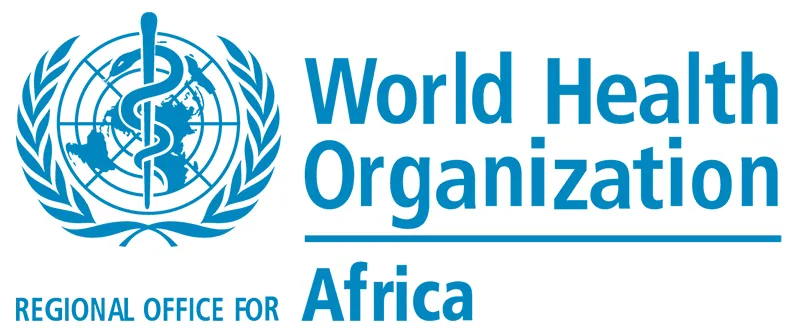
Chad's Fight Against HIV/AIDS: A Beacon of Hope for Mothers and Children
2025-01-02
Author: Jia
In N'Djamena, the capital of Chad, a midwife named Judith Haltebaye is on the front lines of an important battle. With 15 years of experience and seven years at the Abena-Atetip Health Centre, Judith has dedicated her career to improving maternal health and combating the transmission of HIV/AIDS. Her story highlights not only the struggles but also the triumphant progress made in protecting children from HIV.
In 2023, approximately 65,000 women over the age of 15 in Chad were living with HIV, according to a recent report by UNAIDS. The report reveals an HIV prevalence rate of 1.3% among women aged 15 to 49, illustrating the urgency of the situation. To tackle this crisis, the Chadian government initiated the Prevention of Mother-to-Child Transmission of HIV (PMTCT) Programme back in 2005, targeting the three crucial phases of pregnancy, childbirth, and breastfeeding to protect newborns from infection.
The impact of the PMTCT Programme has been profound. The rate of mother-to-child transmission of HIV has significantly dropped from 29% in 2012 to 19% in 2023. Notably, by 2023, 91,000 HIV-exposed children tested negative, while 1,300 new infant infections were prevented—both remarkable improvements since 2015 when those figures were 82,000 and 1,100, respectively.
Dr. Hassan Ndengar, the HIV focal point in southern N'Djamena, stated, “We’re proud of this progress. Children are the strength of our country.” Dr. Ndengar emphasizes the importance of screening pregnant women to break the chain of infection and decrease overall prevalence. This proactive approach is pivotal in Chad’s systematic strategy against HIV/AIDS.
Midwives like Judith play a crucial role in this healthcare initiative. They are not only first responders but also provide substantial support and care to HIV-positive mothers. Under the guidance of the World Health Organization (WHO), Chad has strengthened its healthcare framework, with over 750 healthcare workers recently trained in comprehensive HIV and hepatitis management. This training emphasizes the necessity of immediate screening for women seeking antenatal care.
In 2023, 7,700 pregnant women in Chad required antiretroviral medicines (ARVs), with an encouraging 70% receiving the treatment—an increase from 64% in 2022. Judith recounts a poignant story of one of her patients, Menodjie, who, after following the prescribed treatment, delivered a healthy baby girl free of the virus. Judith shares that these medicines have dramatically transformed lives; they not only provide a sense of normalcy for patients but also instill hope for a healthier future.
The PMTCT Programme has fostered trust within communities, enabling HIV-positive women to consider future pregnancies confidently, knowing the likelihood of having a healthy child is high. Judith reflects on this achievement, saying, “Thanks to PMTCT, we’re saving many lives, and I’m very proud of that.”
Global efforts to combat HIV extend beyond just treatment. WHO, in collaboration with the Chadian government via the Global Fund, aims to integrate strategies for hepatitis B and syphilis into existing maternal and child health services. Dr. Blanche Anya, WHO Representative in Chad, states, “This program is vital as it keeps the patient at the center of interventions—we are working to promote health for all.”
Chad has made leaps towards reaching the ambitious 95-95-95 targets set by UNAIDS, aiming for everyone living with HIV to know their status, receive treatment, and achieve viral load suppression. By 2023, around 71% of HIV-positive individuals were aware of their status, and 86% of those were on ARV treatment, which is a significant leap from figures recorded in 2015.
For mothers like Menodjie, the emotional weight of living with HIV lessens as they witness their children thrive. After her daughter's birth, Menodjie expresses her joy: “I feel good today, and my children are healthy too. Knowing that my daughter is healthy is a great relief. Every mother in the world wants the best for her child.” This sentiment encapsulates the hope and resilience of many mothers in Chad.
Chad's efforts against HIV/AIDS serve not only as a model within Africa but as a rallying cry for continued investment and support in maternal health. The progress achieved highlights the enormous potential for change when communities, governments, and global partners unite for a common cause. Together, they are rewriting the future for countless families and paving the way for a healthier generation.

 Brasil (PT)
Brasil (PT)
 Canada (EN)
Canada (EN)
 Chile (ES)
Chile (ES)
 España (ES)
España (ES)
 France (FR)
France (FR)
 Hong Kong (EN)
Hong Kong (EN)
 Italia (IT)
Italia (IT)
 日本 (JA)
日本 (JA)
 Magyarország (HU)
Magyarország (HU)
 Norge (NO)
Norge (NO)
 Polska (PL)
Polska (PL)
 Schweiz (DE)
Schweiz (DE)
 Singapore (EN)
Singapore (EN)
 Sverige (SV)
Sverige (SV)
 Suomi (FI)
Suomi (FI)
 Türkiye (TR)
Türkiye (TR)